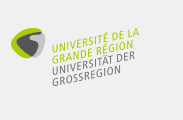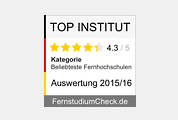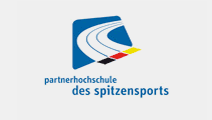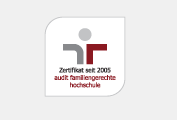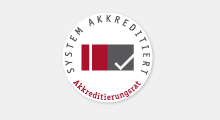Current research questions on accountable algorithmic decision making systems (QAccADM)
Proposal
So-called algorithmic decision making systems (ADM systems) are on the rise in the governmental work We would thus like to make the proposal that we do not try to vamp up a full scientific conference, but rather create a meeting space for all researchers in our interdisciplinary research area by calling for small lightning talks (see more information on this below). We would like to additionally invite people from the German Research Community (DFG), the ministries who fund research in this area (BMAS, BMBF, BMJ), Volkswagen Stiftung, Bertelsmann Stiftung, Mercator Stiftung, and so on. The idea is to disseminate our own research results plus to give others the opportunity to discuss current research and open research questions. We want to make a strong case for more research funding for interdisciplinary research in this area. The last hour could be dedicated to a panel discussion with funding bodies on how to help interdisciplinary groups in their research.
13th of March, 10-18h
Venue
Vertretung des Landes Rheinland-Pfalz
beim Bund und bei der Europäischen Union
In den Ministergärten 6
10117 Berlin
Important Dates
Abstract/Paper/Video submission: 13.12.2022
Notifications: 31.01.2023
Conference: 13.03.2023
All deadlines are at 11:59 PM Anywhere On Earth on the given date.
Schedule
In this schedule, all groups have a slot of 45-55 minutes to focus on the results of their research and the open questions regarding the safe use of AI / ADM systems of their community.
| Begin | Ende | |
|---|---|---|
| 10:00 | 10:10 | Introduction KA Zweig |
| 10:10 | 10:20 | Introduction Landesvertretung Rheinland-Pfalz (the building we’re in is Rhineland-Palatian’s representation in Berlin) |
| 10:20 | 11:15 | Track 1: Research in the political sciences regarding governmental use of ADM systems (Wenzelburger) |
| 11:15 | 12:10 | Track 2: Rechtliche Fragen zur Nutzung von ADM-Systemen vor Gericht (Schulz) |
| 12:10 | 12:55 | Lunch |
| 12:55 | 13:50 | Track 3: Legal questions regarding the use of ADM systems in the Criminal Justice System (Yeung) |
| 13:50 | 14:05 | Coffee |
| 14:05 | 15:00 | Track 4: Questions on how to develop and deploy an accountable ADM system (Zweig) |
| 15:00 | 15:55 | Track 5: Psychological aspects on the usage of ADM systems (Achtziger) |
| 15:55 | 16:05 | Coffee |
| 16:05 | 17:20 | Fishbowl |
| 17:20 | 18:00 | Summary |
Call for participation
Governments all over Europe start to use AI to communicate with their citizens, to distribute resources, to identify security threats or to evaluate situations and people. At the same time, the European Commission is preparing a first law on the regulation of AI. In these times, more interdisciplinary research is necessary to find the best national adaption to the European law. Our research project has shown that multiple disciplines, including as psychology, computer science, law, and political science can to come together to generate richer insights on what AI can and cannot do in criminal justice contexts. In this conference, we want to hear about current research and open questions with respect to the use of AI / ADM systems by European governments.
Track 1: Research in the political sciences regarding governmental use of ADM system (Wenzelburger)
Chair: Prof. Dr. Wenzelburger
Description: In this slot, we want to discuss research from political science and public administration on how state agencies use ADM systems and which differences can be observed between countries, policy areas or levels of government. Hence, we invite abstracts for papers that either discuss empirical cases of ADM use by the state or put forward a theoretical argument on this question drawing on concepts from political science and public administration. We are particularly interested in contributions that address questions like: How do algorithms interfere with politics when politicians decide about the use of an ADM? How do they affect policy-making i.e. political decision-making? And how do they change polity, that is the institutional setup, routines, or bases of legitimacy? Each contribution should pose at least one open research question for future research.
Submission Format and Guidelines: We plan to have a Lightning-Talk format. In this format, participants give short presentations on their research - of no more than 8 minutes each. Please prepare such a short presentation and make your slides understandable for a wide audience (e.g., computer scientists, legal scientists, political scientists, economists). Please integrate a (final) slide where you pose at least one open research question in connection with your presentation. We will close the session with a discussion about these open questions. Please submit an abstract of around 500 words by December 13th. The abstract should not only include a short summary of the work you want to present but also one or several questions for future research based on your work.
Planned outcome of the session: The outcome of the session is to get an understanding of what cutting-edge research in political science has to say about the question of how and to what extent the advent of ADM systems changes the foundation of politics and policy-making. While the “Lightning Talks” will not enable us to discuss the individual contributions very deeply, they wil lnot only stimulate interdisciplinary academic exchange on the open research questions posed during the talks but also provoke discussions on how to address these. As the conference will also give participants the opportunity to network and to build up collaborations as well as to talk to possible funding agencies (from Germany), outcomes of the sessions may reach beyond academic exchange and also involve steps toward a concrete research agenda.
Review Process: All abstracts will be evaluated in terms of their clarity, content and their fit to the call. We are especially interested in work that connects a political science or public administration perspective with an interdisciplinary angle. Moreover, the question(s) for future research included in the abstract will be of particular importance in the selection process. We will select four proposals which will be presented in the 55 minutes slot together with a short 10 minutes presentation from the organizers. Remaining proposals that we found particularly stimulating but could not be invited due to time constraints will be included in a short document on the panel together with the presented abstracts and contact information of all authors. This will enable networking even for those who could not be invited to Berlin. The document will also be circulated to interested funding agencies and political institutions.
Track 2: Rechtliche Fragen zur staatlichen Nutzung von ADM Systemen vor Gericht (Schulz)
Chair: Prof. Dr. Wolfgang Schulz
Description: In this slot, we want to collect and discuss open research questions pertaining legal questions regarding the development and governance of ADM systems deployed by the state. Proposals and initial approaches to the regulation and control of ADM systems, particularly in light of the AI Act, are of interest here, as are interdisciplinary issues or projects dealing with the implementation of legal requirements in the development of ADM systems. Furthermore, the legal-theoretical and constitutional foundations that are implicated in the use of algorithmic systems, especially when used in the judiciary, are of increased interest. Thus, we want to identify possible directions for further jurisprudential and interdisciplinary research projects that, for example, formulate normative requirements for algorithmic systems that can be implemented in computer science, strive for new legal dogmatic approaches, or want to establish a new, common interdisciplinary vocabulary.
Submission Format and Guidelines: We plan to have a Lightning-Talk format. In this format, each participant submits 20 slides (PowerPoint) that are autoforwarded (!) every 20 seconds. In total, each participant thus has 6 minutes and 40 seconds to make their case. Please make your slides understandable for a wide audience (e.g., psychologists, computer scientists, political scientists). We will close the session with a discussion format in which each participant can react to the other talks.
Please submit an abstract of your open research question and a video of your talk (mp4) until the 13th of December.
Planned outcome of the session: We will summarize the open research question in a two-pager and send them out to various third-party funder, industrial consortia, and political institutions like the DFG (computer science section), the Volkswagen Stiftung, the Bertelsmann Stiftung, the Mercator-Stiftung, ministries, and to industry consortia like etami. Authors of accepted abstracts get the opportunity to add their abstract of open research questions to the appendix of the two-pager.
Review Process: The slides can be adapted until the conference, but we would like to get an idea of your talk. The review will be based on the clarity of content, quality, and relationship to the call. We will try to spread the scope of open research questions as wide as possible. Rejected proposal might be accepted to the appendix of the two-pager which will be sent out to various 3rd party funders, industrial consortia, and political institutions.
Track 3: Legal questions regarding the use of ADM system in the Criminal Justice System (Yeung)
Chair: Prof. Dr. Karen Yeung
Description: In this panel, we wish to surface under-examined yet important research questions concerned with the development and deployment of ADM systems for use in the criminal justice context. While considerable critique has focused on their discriminatory impacts for marginalised communities in ways that may violate equality law, we seek to bring to the fore other important legal and constitutional concerns that have hitherto received little attention. The springboard for these discussions arises from the primary research questions which animated this stream of our Project’s work: namely, are ADM systems being used in criminal justice settings in ways that are consistent with fundamental principles of the criminal justice system and respect for constitutional principles, including human rights.
Potential relevant research questions include how do contemporary practices in the development and deployment of ADM systems, for use in the criminal justice context, make normative trade-offs between competing values, and how might they be configured to make appropriate trade-offs that are consistent with constitutional democratic legal frameworks, including respect for human rights? To what extent are ADM systems similar to, or different from, the ‘conventional paradigm’ of the criminal justice system, that has traditionally been directed towards catching, convicting and punishing the guilty offender and thus giving rise to certain due process protections? What legal-theoretical frameworks can be best used to understand existing, and potential, tensions between contemporary practices in the development and deployment of ADM systems for use in the criminal justice system, and applicable legal and/or constitutional requirements that ought to apply to said practices? How does reliance on technologies and systems developed by private sector actors affect conformity with constitutional principles that underpin the legitimacy and legality of criminal justice decision-making and practices? To the extent that deficits are identified, what specific legal governance and reform measures are necessary to ensure that these are effectively and legitimately addressed?
We are particularly keen to stimulate genuinely interdisciplinary communication between law and computer science that operates in both directions in which each discipline engages meaningfully with each other’s discipline and central precepts and presuppositions. We welcome a wide variety of methodological approaches, with academic rigour and originality being our most important desiderata, provided that the paper falls within scope.
Submission Format and Guidelines: We plan to have a lightning talk format. Participants will be invited to give short presentations of their research, lasting no longer than 7 minutes each. Presentation slides will be auto-forwarded every 20 seconds, and once this time has passed, there will be no opportunity to return to any previous slide. Presentations will automatically end at the 7-minute mark. Each speaker should include a slide that sets out what they believe to be the most pressing or interesting research question, or questions within the panel theme.
We aim to have 3 to 4 lightning speakers in total. This will be accompanied by a 10-minute presentation by the panel organizers on their research findings as part of the FATAL4JUSTICE? project. The panel will finish with a broader discussion regarding the research questions and findings raised by each speaker.
Please submit an abstract of around 500 words by 13th December 2022. This abstract should include a short description of your proposed talk and provide a preliminary version of the question(s) that you would like to raise for discussion that have been under-examined in existing scholarship and policy discussion.
Planned outcome of the session: We aim to complete a short report on the panel (two to five pages), for wider circulation after the conference. This report will summarize each talk (including any identified open research questions) and the broader discussion between the panel and audience and identify key questions for future research that require further scholarly attention, and possible approaches through which they might be addressed. It will be publicly disseminated as well as shared directly with stakeholders, including research funding agencies, criminal justice authorities, commercial actors from the tech industry, civil society and human rights organizations, and also shared for academic knowledge exchange on relevant research repositories, such as LawArXiv. It may also be used to inform the dissemination of a research blog via the University of Birmingham, or an alternative venue.
Review Process: All abstracts will be evaluated in terms of their clarity, content and their ‘fit’ to the call, originality and rigour. Submissions that are not accepted to the conference panel may be considered for inclusion in the panel report, unless authors indicate otherwise. To help help stimulate future discussions and networking opportunities when the panel report is more widely circulated after the conference, those submitting abstracts will be asked to indicate if they are content for their abstract to be referred to in the Report, and whether they wish to have their research interests and contact details included in the Report.
Track 4: Questions on how to develop and deploy an accountable ADM system system (Zweig)
Chair: Prof. Dr. Katharina Zweig
Description: In this slot, we want to collect and discuss open research questions pertaining technical questions regarding the development and deployment of accountable ADM systems. Are you working on how to audit ADM systems, especially those used by governmental institutions? Are you developing a new software engineering process for creating accountable ADM systems? What are technological requirements for accountable ADM system? How can transparency and accountability be established with technological means?
If you have an open research question whose answer demands an interdisciplinary group and new funding possibilities, apply for one of five slots in this track.
Submission Format and Guidelines:
We plan to have a Lightning-Talk format. In this format, each participant submits 20 slides (PowerPoint) that are autoforwarded (!) every 20 seconds. In total, each participant thus has 6 minutes and 40 seconds to make their case. Please make your slides understandable for a wide audience (e.g., psychologists, legal scientists, political scientists). We will close the session with a discussion format in which each participant can react to the other talks.
Please submit an abstract of your open research question and a video of your talk (mp4) until the 13th of December.
Planned outcome of the session: We will summarize the open research question in a two-pager and send them out to various third-party funder, industrial consortia, and political institutions like the DFG (computer science section), the Volkswagen Stiftung, the Bertelsmann Stiftung, the Mercator-Stiftung, ministries, and to industry consortia like etami. Authors of accepted abstracts get the opportunity to add their abstract of open research questions to the appendix of the two-pager.
Review Process: The slides can be adapted until the conference, but we would like to get an idea of your talk. The review will be based on the clarity of content, quality, and relationship to the call. We will try to spread the scope of open research questions as wide as possible. Rejected proposal might be accepted to the appendix of the two-pager which will be sent out to various 3rd party funders, industrial consortia, and political institutions.
Track 5: Psychological aspects on the usage of ADM systems
Chair: Dr. Julia Felfeli, Prof. Dr. Anja Achtziger
Description: In this slot, we want to discuss research questions on psychological aspects regarding the interaction between human decision-makers and ADM systems. Research questions focusing on the perception of ADM systems as well as the influence of ADM systems on human decision processes are of interest. Interdisciplinary approaches to these topics are welcome.
Submission Format and Guidelines: We plan to have a Lightning-Talk format. In this format, each participant gives a presentation on their research. In total, each participant has 10 minutes to make their case. Please make your slides understandable for a wide audience (e.g., computer scientists, legal scientists, political scientists, economists). We will close the session with a discussion in which each participant can comment the other talks.
Please submit an abstract of your research question (around 500 words) until December 13th, 2022.
Planned outcome of the session: To inspire each other with new cutting-edge research ideas on the interaction of human decision makers and ADM systems and their consequences on human cognition, affect, and behavior. Further, the idea is to provide all participants with the opportunity of networking and collaboration. Moreover, participants are able to discuss their research with leading funding agencies in Germany.
Review Process: All abstracts will be evaluated on the clarity of content, quality of the research, and their fit to the call. We will try to cover a broad range of research questions. Highly interdisciplinary research would be appreciated in particular.
Questions?
Contact the Program Co-chairs: conferenceQAccADM@cs.uni-kl.de
Twitter Hashtag: #QAccADM2023



![[Logo des FB Informatik]](/logos/logo_fbi_167x60.png)
